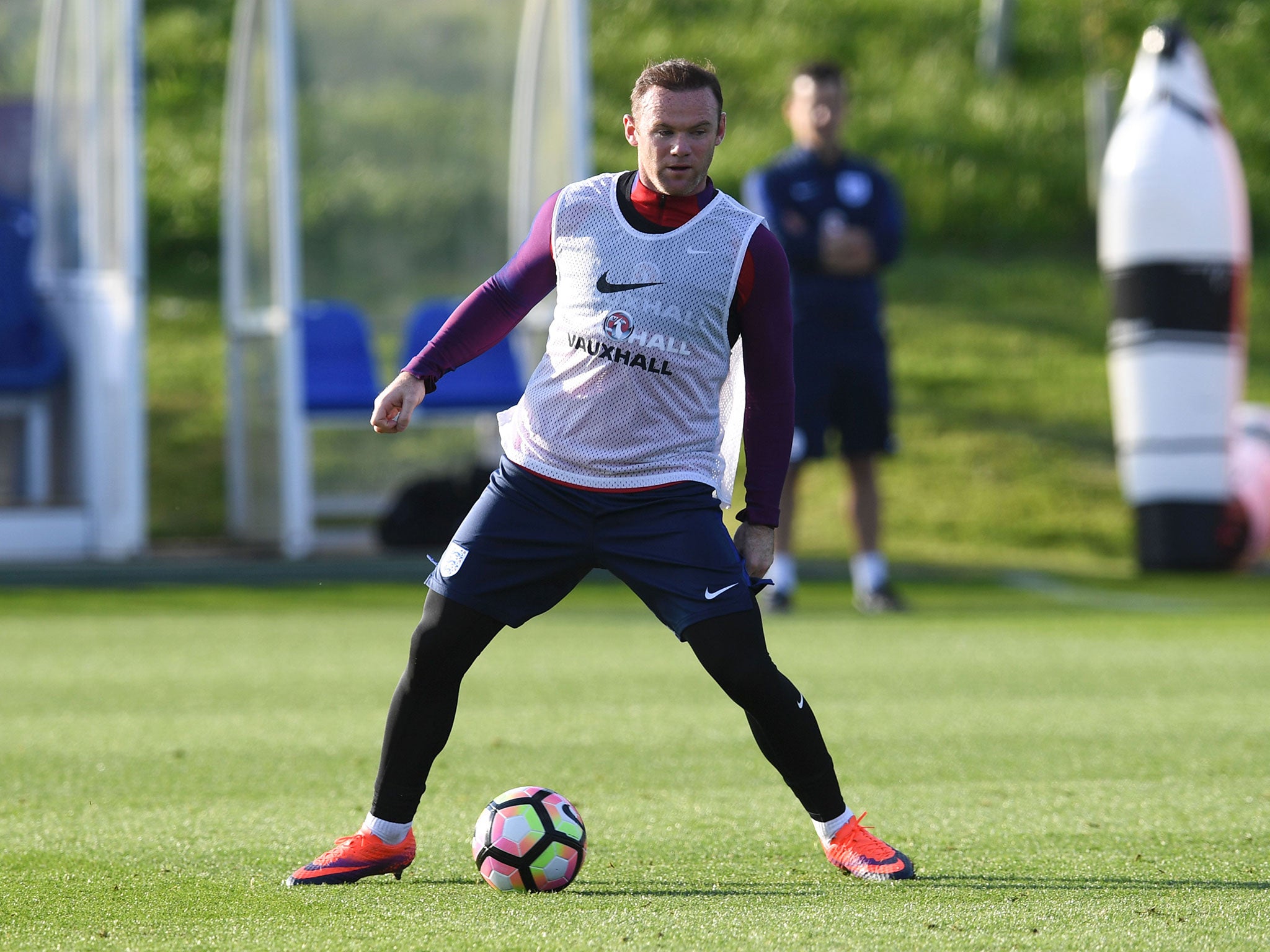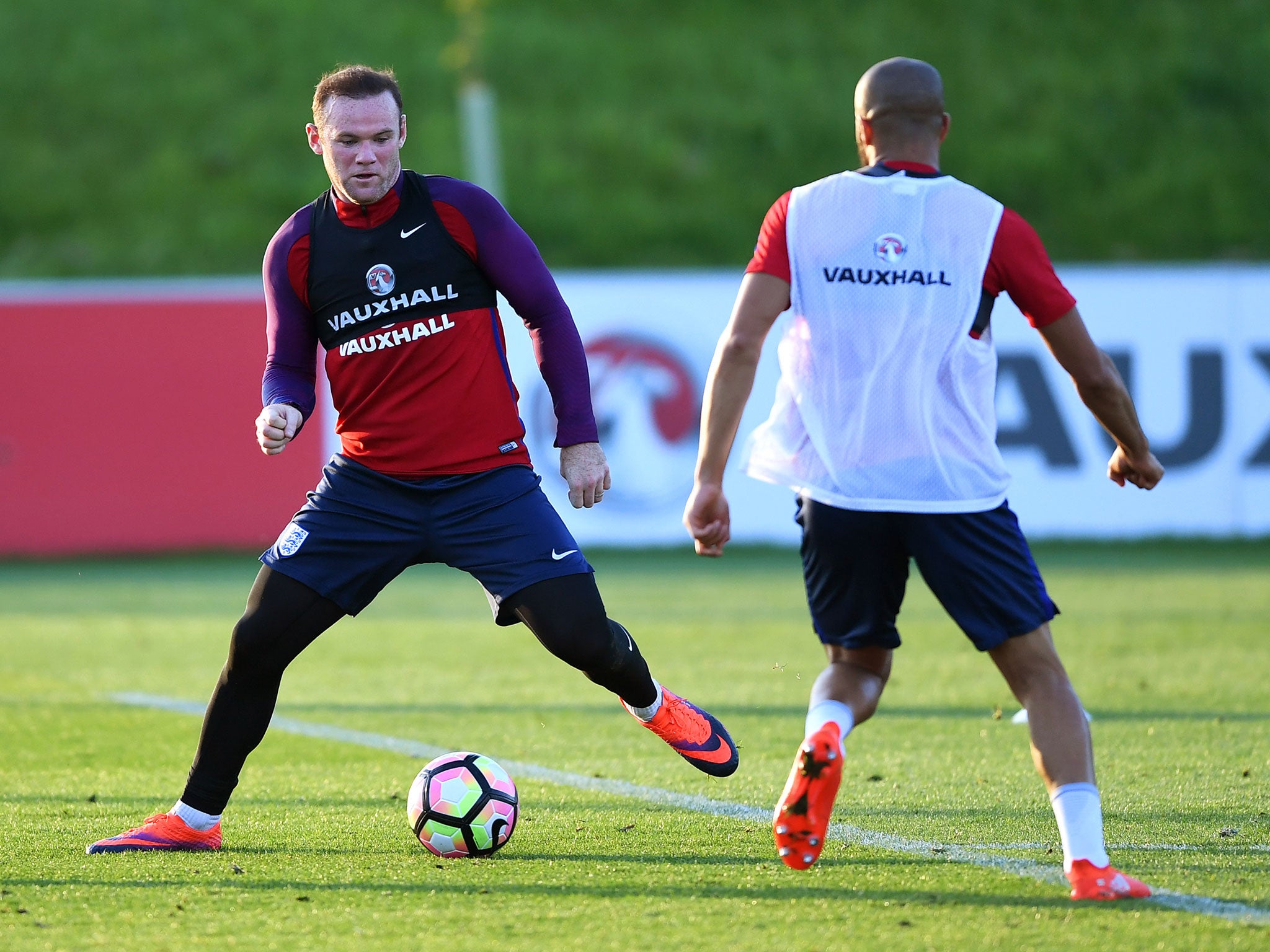Wayne Rooney: The strange death of affection for one of England's great players - where did it all go wrong?
For all his accolades and records, Rooney has made a name for himself as the player the nation loves to hate, writes Ian Herbert

Your support helps us to tell the story
From reproductive rights to climate change to Big Tech, The Independent is on the ground when the story is developing. Whether it's investigating the financials of Elon Musk's pro-Trump PAC or producing our latest documentary, 'The A Word', which shines a light on the American women fighting for reproductive rights, we know how important it is to parse out the facts from the messaging.
At such a critical moment in US history, we need reporters on the ground. Your donation allows us to keep sending journalists to speak to both sides of the story.
The Independent is trusted by Americans across the entire political spectrum. And unlike many other quality news outlets, we choose not to lock Americans out of our reporting and analysis with paywalls. We believe quality journalism should be available to everyone, paid for by those who can afford it.
Your support makes all the difference.It is a measure of the difference between England and other nations in the judgement of footballers that Gianluigi Buffon committed a criminal error for Italy against Spain in Turin on Thursday night and was not eviscerated for it. “Italia s’e’ desta” (‘Italy has awakened’) proclaimed the banner headline of Friday’s Gazzetta dello Sport after the 1-1 draw.
This is how it is between the continental European elite and their great players. If you are an Italian or a Spaniard, you do not need to tread meekly into your 30s for fear of being declared a has-been. Raul was loved long after he stopped being Spain’s best option at the 2006 World Cup, where David Villa was already eclipsing him. It helps when you are a Real Madrid player in the Spain team: supporting one probably means you support the other. But even Barcelona’s fans feel that Raul’s achievements bought him some respect that helped keep him in the side. Andres Iniesta still receives a standing ovation at every ground in Spain bar Athletic Bilbao because of his World Cup winning goal in 2010.
What wouldn’t Wayne Rooney give for an ounce of that sentiment? To describe him - justifiably - as the outstanding England player of the past decade or so is to risk a tirade of abuse, as does the assertion that he remains one of English football’s most visionary deliverers of the ball in a confined space. Few players have, like Rooney, had their own club’s fans proclaiming that any positive observation about him belongs to a media conspiracy. It was by a 99.08 per cent majority in September that Red Issue Sanctuary forum members wanted him dropped. When you've come from where he came from, you won't be cut much slack in Manchester.
This was the week when Rooney delivered the most extraordinary interview of his career - in which he has provided a fair few - asserting that he is no longer a No 10 Jose Mourinho has proclaimed him to be. Rooney offered none of the boring, cardboard talk which has become the bread and butter of footballer press conferences. But yet, as he begins the task of convincing yet another new England manager of his worth on Saturday evening, it is hard to avoid the perception that much of the nation wants him to fall. “I'm a United season ticket holder & I can't stand him,” as supporter Mathew Stewart told me on Twitter a few days ago.
The hate is, of course, borne of a sense that Rooney is greedy. He played Manchester United for more money in 2010 and then again in 2013 when he held all the cards, and before that there was the kind of detail laid out in ‘Rooney’s Gold’, a memorable book by the investigative journalist John Sweeney. The cars he owned as a teenager which, Rooney said, were “nothing too extravangant”: a brace of BMW X5s, a Mercedes 4x4 and Mercedes SLK. Plus the Aston Martin Vanquish that Coleen bought him as a surprise early 21st birthday present. He’s run a Cadillac Escalade, a Bentley Continental GT (top speed 195mph) and a Lamborghini Gallardi (top speed 193mph) over the years.
The hate is also borne of the fact that he left Everton, aged 18, for a club deeply disliked by many of those who aren’t supporters – “simultaneously the most loved and most hated club,” as the former Liverpool and Premier League chief executive Rick Parry describes Manchester United in a revealing interview for Simon Hughes’ new book, ‘Ring of Fire’.
It was 2004 when he arrived at Old Trafford and in the ensuing 12 years the money has become ridiculous and the channels for hate have become profuse. In Rooney’s first two years at Old Trafford, there was no Twitter. England’s failure has contributed towards the dislike, too: a syndrome which has also seen Steven Gerrard and Frank Lampard reviled by many. Though neither of them are quite like Rooney – a player who, in some ways, has been a victim of his own prodigiousness.
The talent and the strength were so abundant from day one that there has just not been the development curve we saw in a youthful Beckham, Giggs, Scholes or Neville. Their vulnerability at times made them sympathetic characters, though Rooney seemed only briefly to be a boy. At Everton, they remember the day when he saw strapping David Unsworth holding a punch bag in the gym. Rooney, aged 16, charged at him. He took out 6ft 1in Unsworth and the punch-bag, bringing him and it crashing onto the mats beyond.
Because he was a world class player at 16, the slightest decline or imperfection was deemed to be an avalanche – scrutinised and raked over endlessly, in a nation which builds up and knocks down its players more than any. If you perform as Rooney has performed in most countries, you are revered for life. Not here. People looked for failings. His squat, bull-like stature - his “frame” as Sir Alex Ferguson once put it – has allowed the detractors to characterise him as fat.

The problem he faces now is a phalanx of players chasing down his old No 10 position. There were very few challengers for it when he arrived on the scene, breathing down Teddy Sheringham’s neck, but it’s become a fashionable place to play. Dele Alli vs Rooney for that position? Alli every time. Adam Lallana’s form also makes him a challenger. In Manchester, Paul Pogba operates best running into that space and, though yet to burst in, Henrikh Mkhitaryan is a very fine player in the offensive midfield line. To survive, Rooney has to find a new space to operate within.
His place in Saturday evening’s team is warranted. He remains the outstanding leader in the England side and the prospect is genuine of him demonstrating once again his capacity to do extraordinary things. It’s why he is one the cameras and the supporters will track when another England chapter begins at Wembley. He remains the story, the drama, England’s second most proficient goal-scorer of all time and yet the one the nation loves to hate.
Join our commenting forum
Join thought-provoking conversations, follow other Independent readers and see their replies
Comments